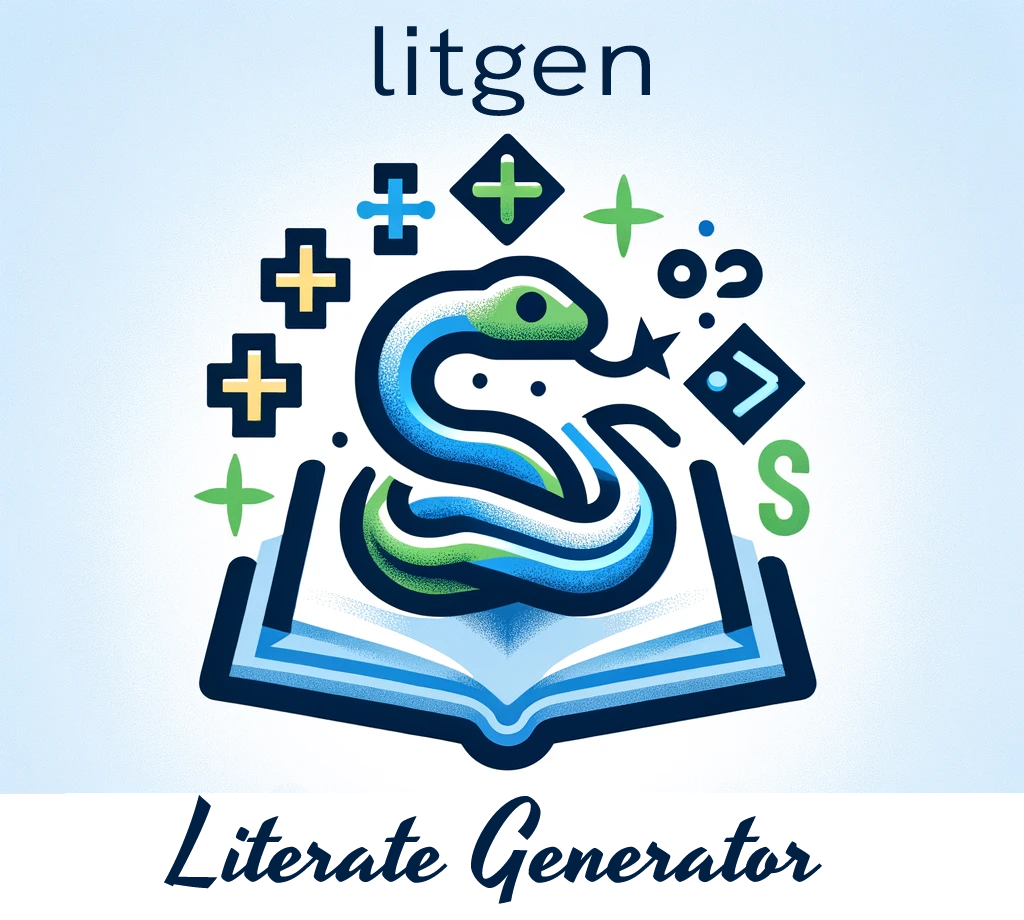Quickstart#
This page shows how to get results with litgen in 5 minutes, without setting up a full repo.
You will generate Python stub code and C++ binding code from a simple header.
To actually compile and import the bindings, please use the Litgen Template.
Step 1: Install litgen#
pip install litgen
or, for the latest development version:
pip install "litgen@git+https://github.com/pthom/litgen"
Step 2: Write a small C++ header#
// file: mylib.h
#pragma once
inline int add(int a, int b) { return a + b; }
struct Point {
int x = 0;
int y = 0;
};
Step 3: Run litgen#
# file: generate.py
import litgen
options = litgen.LitgenOptions()
gen = litgen.generate_code_for_file(options, "mylib.h")
print("===================================")
print("=== Generated stub code (.pyi) ===")
print("===================================")
print(gen.stub_code)
print()
print("===================================")
print("=== Generated pydef code (.cpp) ===")
print("===================================")
print(gen.pydef_code)
Run it:
python generate.py
Step 4: Inspect the output#
Stub file (Python declarations, .pyi):
def add(a: int, b: int) -> int:
pass
class Point:
x: int = 0
y: int = 0
def __init__(self, x: int = 0, y: int = 0) -> None:
"""Auto-generated default constructor with named params"""
pass
Pydef file (C++ binding code, .cpp):
m.def("add",
add, py::arg("a"), py::arg("b"));
auto pyClassPoint =
py::class_<Point>
(m, "Point", "")
.def(py::init<>([](
int x = 0, int y = 0)
{
auto r_ctor_ = std::make_unique<Point>();
r_ctor_->x = x;
r_ctor_->y = y;
return r_ctor_;
})
, py::arg("x") = 0, py::arg("y") = 0
)
.def_readwrite("x", &Point::x, "")
.def_readwrite("y", &Point::y, "")
;
(exact output may vary depending on options and backend)
Step 5: A small tweak (optional)#
You can adjust LitgenOptions to control what gets generated.
For example, to exclude functions whose name starts with _:
options.fn_exclude_by_name__regex = r"^_"
Or to add a custom method, add this before calling generate_code_for_file:
options.custom_bindings.add_custom_bindings_to_class(
"Point",
stub_code="def norm(self) -> float: ...",
pydef_code="LG_CLASS.def(\"norm\", [](const Point& p){ return sqrt(p.x*p.x + p.y*p.y); });"
)
and you will get this stub:
class Point:
x: int = 0
y: int = 0
def __init__(self, x: int = 0, y: int = 0) -> None:
"""Auto-generated default constructor with named params"""
pass
def norm(self) -> float: ...
Next steps#
You now know how to generate stubs and C++ binding code.
To compile these bindings into an importable Python module (with CMake, scikit-build, packaging, CI, etc.), please use the Litgen Template.
Continue reading the User Guide for more details on how to customize the generation.
